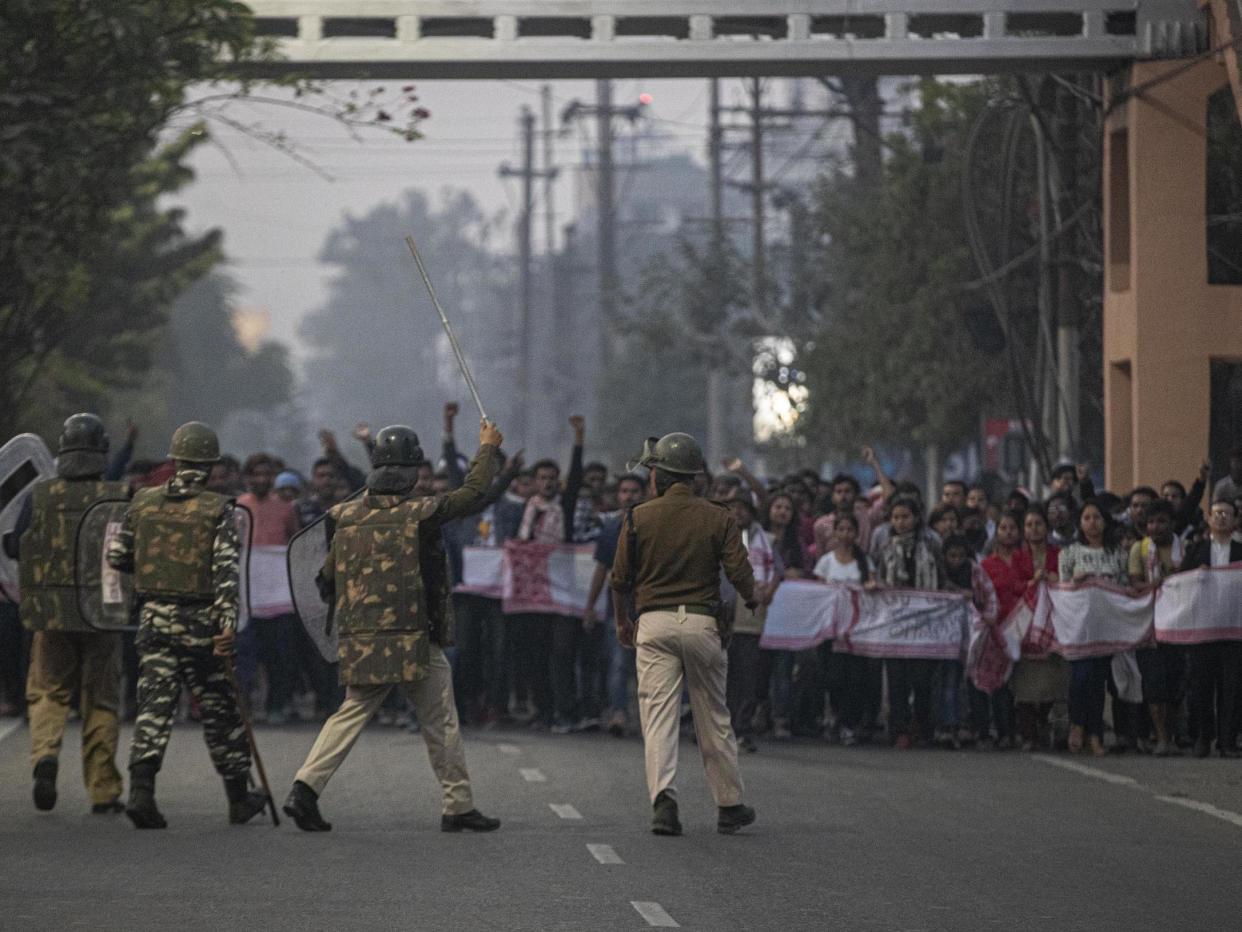Protesters set fire to train stations as thousands rally against India's controversial citizenship law

Violent protests have continued in north eastern India over the government’s new citizenship laws – leading to the deaths of at least two people after police officers opened fire.
Citizens of Assam, an agrarian state which shares a border with Bangladesh, have vocally opposed the government’s new immigration policy – the Citizenship Amendment Bill, or CAB – which gained parliamentary approval on Wednesday.
Now thousands of residents in its largest city Guwahati have defied a curfew to continue opposition to the bill, setting fire to train stations and demonstrating in the streets in anger at a potential increase in migrant numbers from their neighbouring nation.
They were met with tear-gas and gun fire from security forces – with military personnel deployed in the street. So far two members of the public have been killed by officers, according to police.
"This is a spontaneous public outburst," said Nehal Jain, a masters student in communications in Guwahati.
"First they tell us there are too many illegal immigrants and we need to get rid of them. Then they bring in this law that would allow citizenship to immigrants."
Indian prime minister Narendra Modi, who is due to attend a summit in the region with Japan’s Shinzo Abe, called for peace - saying in a tweet "I want to assure them [the people of Assam] - no-one can take away your rights, unique identity and beautiful culture. It will continue to flourish and grow."
However no one caught up in the conflict within the region was able to see his appeal as access to the internet had been cut off from the region in an attempt to stifle dissent.
The contentious bill was put forward by Modi’s government to offer an easier path to citizenship for religious minorities in neighbouring countries - granting Indian nationality to Buddhists, Christians, Hindus, Jains, Parsis and Sikhs who fled Afghanistan, Bangladesh and Pakistan in half the time of other groups.
However the policy has caused anger among two disparate groups – anti-immigrant voices concerned over an influx of migrants from neighbouring countries diluting regional culture, and India’s Muslim minority, worried the bill erodes their rights and furthers a Hindu-nationalist understanding of citizenship in the country.
While the bill creates a path to citizenship based on a number of faith groups that face discrimination, it does not make allowances for Islamic groups like Ahmadi Muslims in Pakistan, or Rohingya Muslims in Myanmar.
Human rights watchdog Amnesty India said it legitimised discrimination on the basis of religion and stood in clear violation of India's constitution and international human rights law.
"Welcoming asylum seekers is a positive step, but in a secular country like India, slamming the door on persecuted Muslims and other communities merely for their faith reeks of fear-mongering and bigotry," the group said in a statement.
However the government has argued partition – when the British Raj divided India and Pakistan on religious lines leading to thousands of deaths – means discrimination by faith is intrinsic to India, and that the policy rights the wrong of groups being forced to become discriminated minorities through their geography.
An editorial in the Indian Express said the bill was “a political signal of a terrible narrowing, a chilling exclusion, directed at India’s own largest minority”.
It added: “India is to be redefined as the natural home of Hindus, it says to India’s Muslims. And that they must, therefore, be content with a less natural citizenship.”
Read more
India: Hundreds demonstrate against citizenship bill excluding Muslims

 Yahoo News
Yahoo News 
